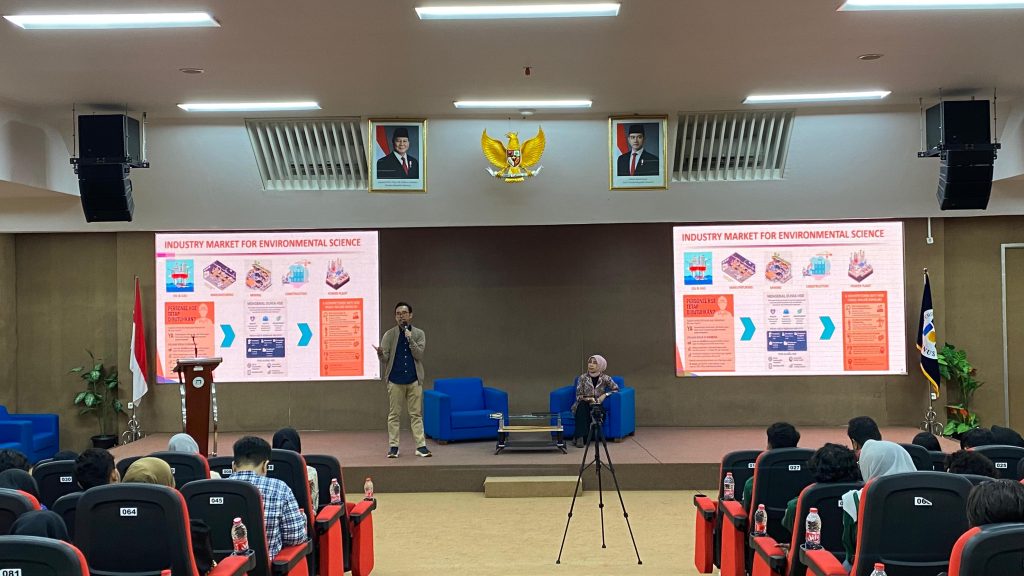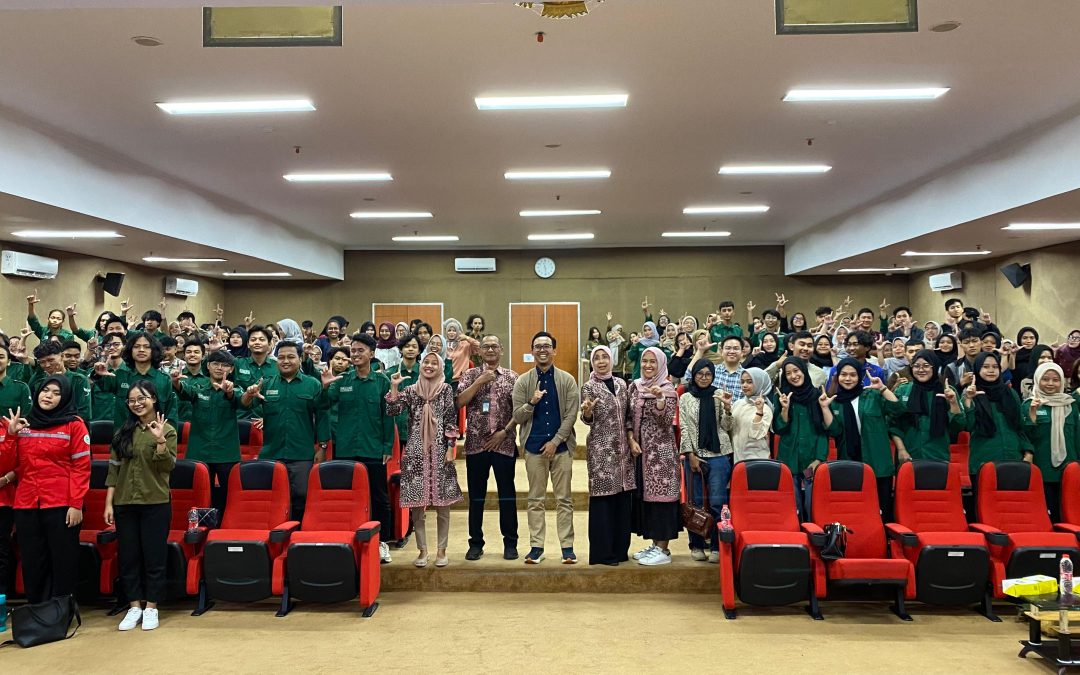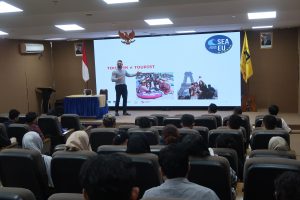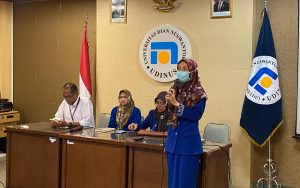The Health Science Faculty at Universitas Dian Nuswantoro (Udinus) encouraged students to learn environmental management in the field of electricity, particularly in Coal-Fired Power Plants. This is embodied through a public lecture entitled ‘Environmental Impact Management Lecture.’
The event is held in the auditorium on the seventh floor of the H building at Udinus, Semarang. It was attended by 150 participants, consisting of Public Health students, Environmental Health students, and students majoring in other fields. Not only did they come from Udinus, but some of these students were also from different universities.
The public lecture was opened by a speech delivered by Dr. Slamet Isworo, M. Kes., the Head of the Environmental Health Department at Udinus. He highlighted that the theme of this event was ‘Environmental Management in Coal-Fired Power Plants.’
“We specifically chose this theme, as Coal-Fired Power Plants are the most prominent power plants in Indonesia, generating the most power compared to other types of power plants. However, they also potentially trigger significant impacts on the environment. Therefore, understanding concerning the management of waste, air emission, wastewater, as well as toxic waste is heavily necessary for environmental health students,” he uttered.
Slamet Isworo added that the seminar featured two speakers, including Sigit Kurniawan, S.T., M.T.,—HSE Manager at PT Bhumi Jepara Service (Coal-Fired Power Plant of Tanjung Jati B5&6), as well as an expert in Environmental Impact Assessment (EIA) and Life Cycle Assessment (LCA), who was also a BNSP-certified assessor, as well as an expert in meso-environment, Dr. Poerna Sri Oetari, M.Si.
“The learning materials encompassed national electricity systems and positions within Coal-Fired Power Plants, air emission management (Nox, SO2, TSP), Continuous Emission Monitoring System (CEMS), wastewater management (IPAL, FGD discharge, run-off coal yard), toxic and non-toxic waste management, as well as implementation of national and international standards, such as PROPER, ISO 14001, and IFC/World Bank,” he explained.

In response to this public lecture, Sigit Kurniawan thought that this event was a perfect opportunity to introduce recent industrial standards and practices concerning waste control, emission, and environmental management systems.
“With this public lecture, students are expected to understand the implementation of environmental management in the industry, as well as get inspired to apply sustainable development principles and awareness to the importance of environmental management systems in the energy sector,” he concluded. (Humas Udinus/Penulis: Ika. Editor: Haris. Foto: Humas FKes Udinus)







